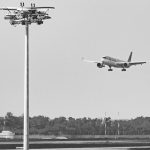Uber taxis are renowned for their reliable service provision in Africa. However, the taxi company is making its way more in Nigeria and Ghana besides other African countries. In Nigeria alone, the company has 267, 000 drivers who use the uber app and 7, 000 driver partners. In Ghana, the company has 140, 000 active riders and 3, 000 drivers who use the app. The statistics indicate that Uber has a huge number of followers in Nigeria compared to Ghana.
The company is not only providing transport services to the locals in Nigeria, but it’s also creating economic opportunities to the locals through employment. Uber is on the move of creating economic developments for driver partners through technology which is one of their main priorities for West African countries in 2017 and many more years to come. The driver partners are in a position to own business other than getting their income hence leading to improvement of the lives of individuals, families, and communities.
The increase in the number of Uber driver partners in the West African countries is as a result of the appeal of the model since it offers real opportunities to the local entrepreneurs. The higher the demand for rides leads to higher demand for driver partners. Technology being the company’s pillar, Uber invests heavily in supporting their driver partners through the current innovations as well as physical presence in the form of support centers referred to as Greenlight Hubs.
Apart from the Green Hub in Sub Saharan Africa, five more of these state-of-the-art Hubs were opened in Lagos, Kumasi, Dar Es Salaam, Nairobi and Kampala, this year and, in addition to offering driver-partners technical and app support, they also offer information sessions and tailored workshops to driver-partners, focusing on training and skills development. The recently launched number of features in Nigeria by Uber makes it easier for Driver partners to choose, where, when and how they want to drive. Unlike previously when the time spent in traffic was not charged, currently that time is charged hence providing driver partners and riders with a more reliable experience.
 We just launched our WhatsApp channel. Want to get the latest news from the Tech in Africa?
We just launched our WhatsApp channel. Want to get the latest news from the Tech in Africa?


